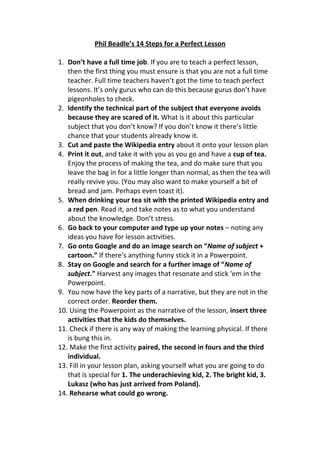Phil Beadle's 14 steps for a perfect lesson involve identifying a technical part of the subject that is often avoided, copying the Wikipedia entry on it into the lesson plan, taking notes on it over tea, adding images and activities to a PowerPoint presentation, and considering how to engage different types of students. The goal is to create a narrative structure and make the learning physical, paired, and individual.
